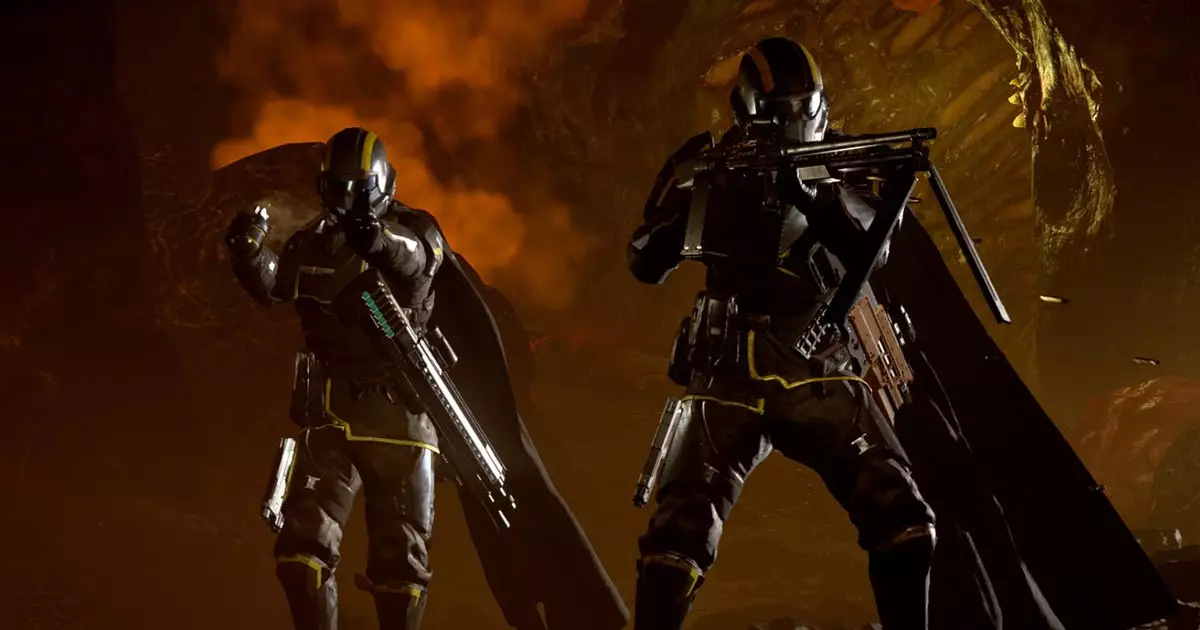In the high-stakes realm of game development, particularly within multiplayer experiences, the pressure to deliver a polished product often clashes with the reality of unforeseen bugs and gameplay imbalances. Arrowhead Studios demonstrates a rare level of honesty and responsibility with their recent decision to temporarily remove the Rupture Strain enemies from Helldivers 2. This move goes beyond typical patch fixes and signals a strategic commitment to ensuring a balanced and fair gameplay experience. Instead of rushing to patch the game hurriedly, the studio opted for an extended hiatus — five weeks — to recalibrate their flawed enemy mechanics. This decision underscores a moral stance: delivering a subpar experience, especially when game-breaking elements are involved, is ultimately worse than delaying updates for refinement.
Their transparency about the issue also sheds light on a larger industry problem: the tendency for developers to patch problems hastily, sometimes at the expense of quality and long-term playability. By acknowledging the imbalance caused by the Rupture Warriors—whose apparently overpowered and unfairly aggressive behavior compromised gameplay—they demonstrate a willingness to place player experience above immediate release schedules. This approach calls for greater accountability and sets a precedent for future game releases. Instead of sweeping flaws under the rug or issuing half-baked fixes, Arrowhead chooses to put the game’s health first, even if that means temporarily removing content. This decision should be scrutinized as a positive example of a developer valuing quality over rapid deployment, serving as a lesson to both studios and players about the importance of integrity in ongoing live-service titles.
Balancing Acts: The Challenge of Wildly Overpowered Enemies
The core issue with the Rupture Warriors illustrates a deeper challenge faced by developers: how to modulate complex enemy behaviors in a multiplayer environment. These enemies, proud inhabitants of the game’s “Into the Unjust” update, were apparently introduced with aggressive design intentions but quickly spiraled into a problem for players. The warriors’ ability to emerge suddenly and assault players ruthlessly created a dynamic where even seasoned teams struggled to respond. It boiled down to a straightforward but disastrous design flaw: the enemies’ attack mechanics were overtuned and inconsistent with the game’s intended balance.
What makes this situation particularly frustrating is the partial fix introduced in the recent patch. It appears that while the developers attempted to address the crowd control issues—such as the enemy’s sudden threats—they inadvertently made the whole problem worse. The patch’s effects seemed to level the playing field temporarily but also resulted in players experiencing more unpredictable and unfair attacks, especially for hosts, thus undermining confidence in the game’s fairness. Here lies a clear lesson about the complexity of adjusting AI behavior within live online environments: quick patches can sometimes create new problems while trying to fix old ones. This highlights the importance of thorough testing and incremental changes rather than sweeping balance adjustments that risk alienating the player base. Arrowhead’s decision to remove the Rupture Strain altogether until a more refined solution is ready paves the way for a more thoughtful, carefully crafted update.
Communication and Transparency as Pillars of Trust
Arrowhead’s detailed communication—via the Discord announcement—stands out as an admirable example of transparency in modern game development. By openly acknowledging that the bugs and the overpowered enemies stem from specific issues, such as networking problems, the studio builds trust and demonstrates a clear understanding of their technical challenges. Their willingness to admit that the initial fixes caused new complications reveals a mature approach: game development, especially for live services, involves an ongoing learning process where errors are inevitable but can be managed responsibly.
While some players may feel frustrated by the temporary absence of the Rupture Strain, this honesty offers reassurance that the developers are actively working on a solution. It shifts the narrative from “broken patches” to a story of committed problem-solving. Moreover, this transparency fosters a community that is more forgiving of setbacks, understanding that quality, not speed, ultimately determines a game’s long-term success. The takeaway here is that open dialogue and humility from developers are vital tools for maintaining player loyalty and managing expectations in a complex ecosystem where bugs and balance issues are inevitable.
The Path Forward: Prioritizing Long-Term Quality
By pulling back their most problematic enemy units, Arrowhead affirms an important philosophy: sometimes, the best course of action is to hit pause rather than risk damaging the game’s reputation with poorly executed updates. The decision to delay the reintroduction of the Rupture Strain for five weeks shows a dedication to delivering a genuinely enjoyable experience, free from the frustrations that currently plague players. It also demonstrates that a developer willing to admit faults and take corrective measures can steer their game toward a more positive future.
This move will likely reshape the way players perceive Helldivers 2’s post-launch support, instilling a sense of confidence that the studio values player experience over rushed fixes. In an industry increasingly driven by instant updates and live-service pressure, Arrowhead’s stance is refreshingly mature and bold. This case serves as a reminder that games are complex systems requiring patience, meticulous testing, and open communication—elements that ultimately foster a healthier, more sustainable gaming community. If Arrowhead can sustain this commitment, Helldivers 2’s reputation may transcend its initial launch troubles, establishing a benchmark for responsible and ethical game development in the modern era.


Leave a Reply